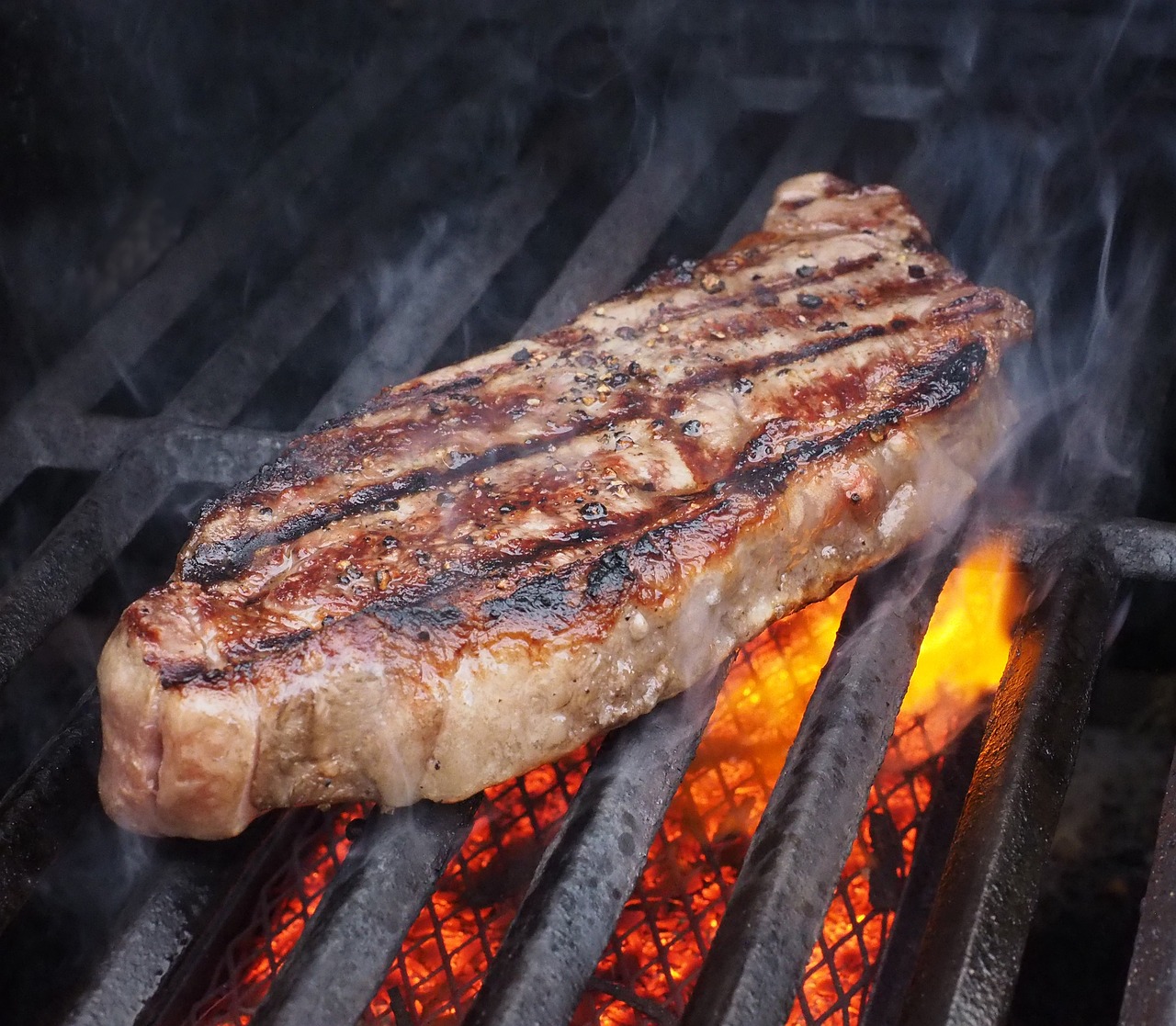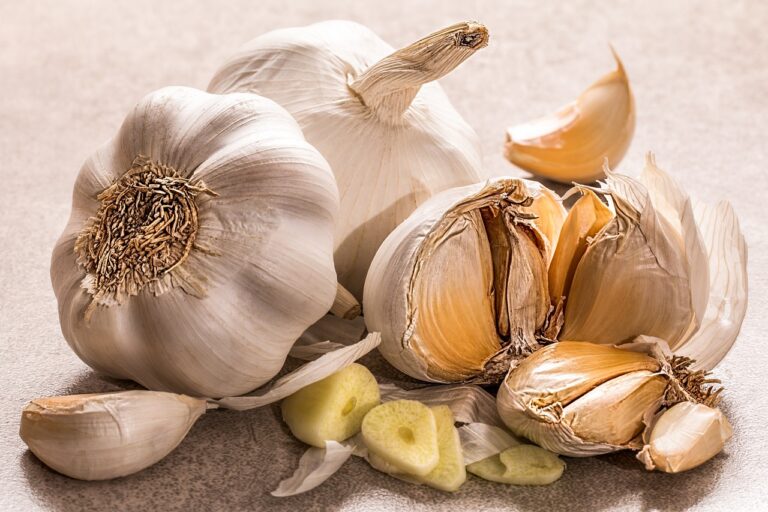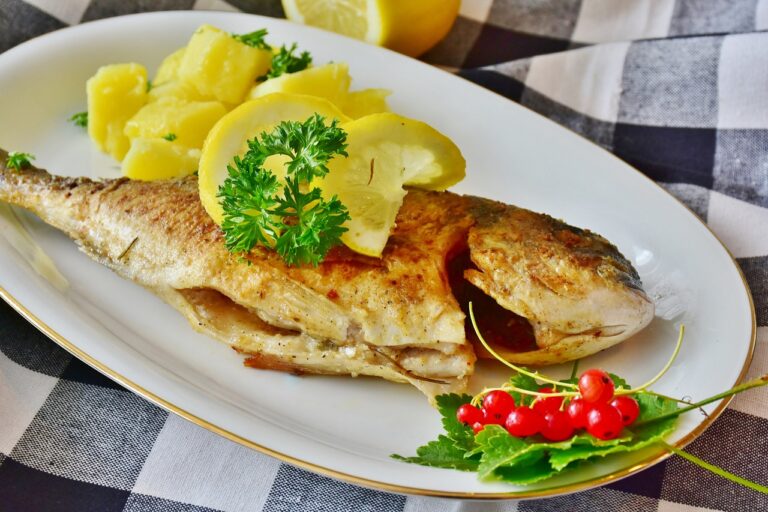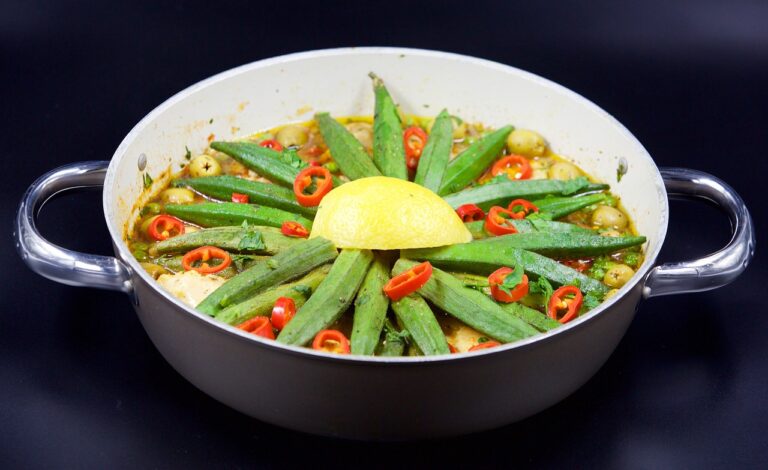10 Reasons Why You Are Craving Beef

Beef, a staple in many global cuisines, is often craved by countless individuals. From succulent steaks to hearty beef stews, the allure of this red meat is undeniable. But what is it about beef that makes it so irresistible? Why do our taste buds and our brains seem to constantly demand its rich flavor? In this article, we dive deep into the top 10 reasons why beef can be such a sought-after delicacy.
From its tantalizing aroma to its rich nutrient profile, there are numerous reasons why many of us find ourselves incessantly craving beef. This article sheds light on the top 10 reasons why beef is a frequent feature in our food fantasies.
Why Am I Craving Beef?
1. Nutritional Value
Beef is packed with essential nutrients that our bodies require. It’s a great source of high-quality protein, which is vital for muscle building and repair. Moreover, beef is rich in essential amino acids that are not easily obtained from plant-based sources.
Additionally, beef is a valuable source of vital minerals like iron, zinc, and selenium. Iron is particularly crucial as it helps in transporting oxygen throughout the body, while zinc plays a significant role in immune function. These nutrients not only nourish our bodies but also contribute to the cravings we experience.
2. Satiety Factor
Beef is incredibly satiating. Thanks to its high protein content, it provides a feeling of fullness that can last for hours after a meal. This can help regulate hunger and prevent unnecessary snacking, which is particularly beneficial for those watching their weight.
The fat content in beef also plays a role in satiety. Fats take longer to digest, providing a prolonged sense of fullness. This combination of protein and fat can explain why after a beef-centered meal, one often feels content and satisfied.
3. Versatility in Cooking
Beef’s versatility in cooking is unmatched. Whether you’re grilling, roasting, braising, or stewing, beef has the ability to transform into a myriad of delicious dishes. This adaptability means that there’s a beef dish for almost every palate and preference.
Furthermore, beef can absorb a variety of flavors, making it suitable for diverse cuisines worldwide. Whether it’s a spicy beef curry, a savory beef bourguignon, or a simple grilled steak, beef’s adaptability in the kitchen is a major reason for its crave-worthiness.
4. Tantalizing Aroma
There’s something about the aroma of cooking beef that draws people in. Maillard reaction, which occurs when beef is cooked, especially at high temperatures like grilling, results in a unique and irresistible scent.
This reaction is a form of non-enzymatic browning where amino acids and sugars interact, producing hundreds of different flavor compounds. These compounds are responsible for the mouthwatering smells that make beef dishes so enticing.
5. Rich Flavor Profile
Beef possesses a deep, rich flavor profile that isn’t found in many other meats. Its umami characteristic, often described as a savory taste, makes it exceptionally appealing.
This umami taste, associated with glutamate, is naturally found in beef and intensifies during cooking. This flavor, combined with the perfect marbling of fat in good quality beef, creates a taste that many find hard to resist.
6. Cultural Significance
For many cultures, beef holds a special place in culinary traditions. From the classic American burger to the Korean bulgogi, beef dishes are central to many celebratory feasts and gatherings.
These deep-rooted cultural connections amplify our cravings. Often, our longing for beef is not just for the taste but also for the memories and emotions associated with certain dishes or occasions.
7. Textural Delight
Beef offers a variety of textures, from the tenderness of a fillet mignon to the chewiness of a well-done steak. This range of textures caters to diverse preferences, making beef a favorite for many.
Moreover, the mouthfeel of beef, influenced by its fat content and cooking method, can be incredibly satisfying. The melt-in-the-mouth sensation of a perfectly cooked steak can be a significant factor behind our beef cravings.
8. Brain Chemistry
Our brains are wired to seek out foods that are calorically dense and nutritionally rich. Beef, with its high protein and fat content, fits this bill perfectly. Consuming beef can lead to the release of dopamine, a neurotransmitter associated with pleasure and reward.
Thus, our brain’s chemistry plays a role in our beef cravings. Over time, as we associate the consumption of beef with pleasure, it’s only natural to find ourselves yearning for it.
9. Evolutionary Perspective
From an evolutionary standpoint, humans have been consuming meat, including beef, for millions of years. This long history suggests that our ancestors sought out beef for its nutritional benefits, which contributed to brain development and overall survival.
This evolutionary predisposition towards beef as a valuable food source might be ingrained in our DNA, leading to the innate cravings we experience today.
10. Social Influence
Lastly, the people around us and societal trends can influence our food cravings. When we see others enjoying a succulent steak or a juicy burger, it can induce a sense of desire.
Additionally, with the rise of food blogging and social media, visually appealing beef dishes are regularly showcased, further heightening our cravings. The power of suggestion, coupled with the genuine allure of beef, often proves irresistible.
Body Craving Beef
Our bodies are intricate systems that communicate their needs in various ways, and sometimes, that communication manifests as cravings. When our body craves beef, it may be signaling a need for specific nutrients found abundantly in this meat, such as iron, zinc, or high-quality proteins. Beef is a powerhouse of essential nutrients, and sometimes, our body’s yearning for it is simply its way of ensuring we get the nourishment it requires.
Additionally, the craving might also be psychological. Associations built over time, such as linking beef to comfort, celebrations, or particular memories, can evoke cravings. When our minds recall those positive associations or feelings, our bodies might respond by manifesting a desire for beef.
Craving Beef All The Time
Constant cravings for beef might indicate more than just a simple love for its taste. It could be a sign that one’s diet lacks certain nutrients, and the body is seeking to compensate by driving a desire for beef. These nutrients could include protein, essential amino acids, B vitamins, or minerals like iron and zinc.
However, it’s also essential to consider behavioral factors. Routine consumption can create a habitual need, meaning if you’re used to eating beef regularly, your body might naturally expect it and crave it. It’s a combination of physiological and psychological factors that can lead to persistent beef cravings.
Craving Beef Before Period
Many women experience specific food cravings leading up to their menstrual period. This is largely due to the fluctuating hormones during the menstrual cycle. Beef, rich in iron and zinc, might be craved because of the impending blood loss, which can reduce iron levels in the body.
Additionally, the body undergoes several metabolic changes during this phase, sometimes leading to increased energy needs. Beef, being a dense source of calories and nutrients, might be the body’s natural way of preparing and sustaining itself through the menstrual period.
Craving Beef Broth
Beef broth, a rich liquid made by simmering beef bones and meat, is often craved for its savory and umami flavors. These deep flavors can offer comfort, especially during colder months or when one is feeling under the weather. Broth is also hydrating and can replenish lost electrolytes.
Moreover, beef broth contains collagen, minerals, and amino acids that can be beneficial for gut health, joint health, and overall well-being. Craving it might be the body’s way of seeking out these nutrients, especially if one’s diet lacks them.
Craving Beef Burgers
A craving for beef burgers might not solely be about the beef itself but the entire experience of consuming a burger. The combination of beef, cheese, bread, and condiments offers a mix of flavors and textures that can be incredibly satisfying.
Furthermore, burgers are often linked to social occasions, gatherings, or even fast-food indulgences. The craving could be tied to these memories or associations, indicating a desire for comfort or familiarity rather than just the beef.
Craving Beef During Period
During menstruation, the body loses iron, leading to a potential decrease in iron levels. Beef, especially red meat, is an excellent source of heme iron, which is readily absorbed by the body. Craving beef during one’s period might be the body’s intuitive way of trying to replenish lost iron.
Simultaneously, the hormonal fluctuations during menstruation can lead to mood swings, fatigue, or feelings of discomfort. For many, consuming comforting and familiar foods, like beef dishes, can provide a sense of relief and satisfaction during this time.
Craving Beef During Pregnancy
Pregnancy is a time of increased nutritional needs. Craving beef during this period might indicate the body’s demand for more protein, iron, and other essential nutrients to support the growing fetus and the changes occurring in the mother’s body.
Moreover, hormonal changes during pregnancy can influence taste and smell sensitivities. Some pregnant women might find themselves drawn to the flavors and aromas of beef, while others might experience aversions. It’s a unique and individual experience, often influenced by the body’s evolving needs.
Craving Beef Fat
Beef fat, or tallow, is a source of saturated fats and contains essential fatty acids. While often vilified in the past, recent research suggests that moderate consumption of saturated fats might not be as detrimental to health as once believed. The body requires fats for energy, hormone production, and absorption of fat-soluble vitamins.
Craving beef fat could be the body’s way of signaling a need for more dietary fats. It’s also worth noting that fat enhances flavor, making beef dishes richer and more palatable. This flavor enhancement can sometimes lead to cravings on its own.
Craving Beef Liver
Beef liver is one of the most nutrient-dense foods available. It’s rich in vitamins A, B12, and iron, among many other vital nutrients. A craving for beef liver could signify a deficiency in one or more of these nutrients.
Additionally, the unique, robust flavor of beef liver might be a draw for some individuals. Cultural and familial food habits can also play a role; if one grew up consuming beef liver, they might crave it due to familiarity and associated memories.
Craving Beef When Sick
When we’re ill, our bodies are in recovery mode, and the demand for specific nutrients can increase. Beef, with its dense nutritional profile, might be what the body seeks to bolster the immune system and speed up recovery.
On another note, the comfort and warmth that beef dishes provide, such as a bowl of beef stew or broth, can be soothing when one is unwell. This craving can be as much about the need for nourishment as it is about seeking comfort.
Craving Corned Beef
Corned beef, with its unique flavor profile resulting from the brining process, can be a crave-worthy food. It’s salty, savory, and has a distinct taste that isn’t found in many other beef preparations. For some, this taste might be the primary reason for the craving.
However, like other beef cravings, it might also be linked to memories or traditions. Corned beef is central to certain celebrations, like St. Patrick’s Day, and the craving could be associated with such occasions or the nostalgia tied to them.
Craving Cured Meat
Cured meats, like salami or prosciutto, are rich in umami flavors, a result of the curing process. This deep, savory taste can be incredibly enticing, leading to cravings. Moreover, the high salt content in cured meats can sometimes drive a desire, especially if the body is low on sodium.
However, constant cravings for cured meats might also indicate a habitual preference. Overconsumption can lead to excessive salt intake, so it’s essential to balance these cravings with other dietary choices.
Craving Ground Beef
Ground beef is versatile and can transform into numerous beloved dishes, from burgers to meatballs to tacos. Craving it might be related to a specific dish or preparation rather than the beef itself. The various ways ground beef can be cooked and seasoned make it a staple in many cuisines, increasing its crave-ability.
Additionally, the ease of cooking and the relatively quick preparation time for many ground beef dishes can contribute to its appeal, especially for those seeking a quick and satisfying meal.
Craving Raw Beef
While it might seem unusual to some, craving raw beef isn’t uncommon. Dishes like steak tartare or carpaccio are celebrated in various cuisines. Raw beef offers a different texture and taste, retaining a certain freshness that cooked beef doesn’t have.
However, it’s crucial to ensure that any raw beef consumed is fresh and handled with care to avoid potential health risks. It’s also worth considering that sometimes, the craving might be more about the seasonings or accompaniments that raw beef dishes often come with.
Craving Roast Beef
Roast beef, with its crispy exterior and juicy interior, is a dish that many yearn for. The slow cooking process allows for a deep development of flavors, making it a standout dish. The aroma, the textures, and the rich taste can all contribute to its crave-worthiness.
Moreover, roast beef is often associated with celebrations, family gatherings, and festive occasions. The craving might sometimes be tied to these memories and the joyous feelings they evoke.
Is Craving Beef A Sign Of Low Iron
Iron deficiency is one of the most common nutritional deficiencies worldwide. Beef, especially red meat, is rich in heme iron, a type of iron that’s easily absorbed by the body. When someone craves beef, it might be a sign that their body is trying to address a potential iron deficiency.
However, it’s essential not to self-diagnose based solely on cravings. If one suspects an iron deficiency, it’s best to consult a healthcare professional who can provide a definitive diagnosis and appropriate recommendations.
Why Do I Crave Beef All The Time
Constant beef cravings can stem from both physiological and psychological factors. Physiologically, it might indicate a deficiency in certain nutrients found in beef, like iron, zinc, or protein. The body, in its wisdom, might drive you towards foods that can address these deficiencies.
On the psychological front, beef might be associated with comfort, happy memories, or even routine. Habitual consumption or positive associations can lead to frequent cravings. It’s essential to introspect and understand the root of such persistent desires to address them appropriately.
Why Do I Crave Meat At Night
Nighttime meat cravings can be intriguing. One possible explanation is the body’s need for tryptophan, an amino acid found in meat. Tryptophan plays a role in producing serotonin, a neurotransmitter that can influence sleep. Consuming meat might be the body’s way of preparing for rest.
Additionally, if one hasn’t consumed enough calories or protein during the day, the body might signal its needs by evoking cravings at night. It’s also worth considering behavioral aspects; if nighttime snacking is a habit, it might drive specific cravings, including for meat.
Why Do I Crave Meat Everyday
Daily meat cravings can suggest a consistent preference or need. From a nutritional perspective, the body might be signaling a regular requirement for the nutrients found in meat, such as protein, iron, or certain B vitamins. Regular physical activity or a high metabolic rate might increase these needs.
However, daily cravings can also be habitual. If meat is a staple in one’s daily diet, the body comes to expect it, leading to consistent cravings. It’s a mix of physiological needs and established routines that can result in such persistent desires.
Conclusion:
Craving beef is a multifaceted phenomenon, influenced by our biology, history, culture, and even social surroundings. Whether it’s the rich flavors, nutritional benefits, or the comforting memories associated with beef dishes, one thing is clear: beef holds a special place in our hearts and on our plates. The next time you find yourself yearning for a beefy treat, know that there are countless reasons behind that craving.






